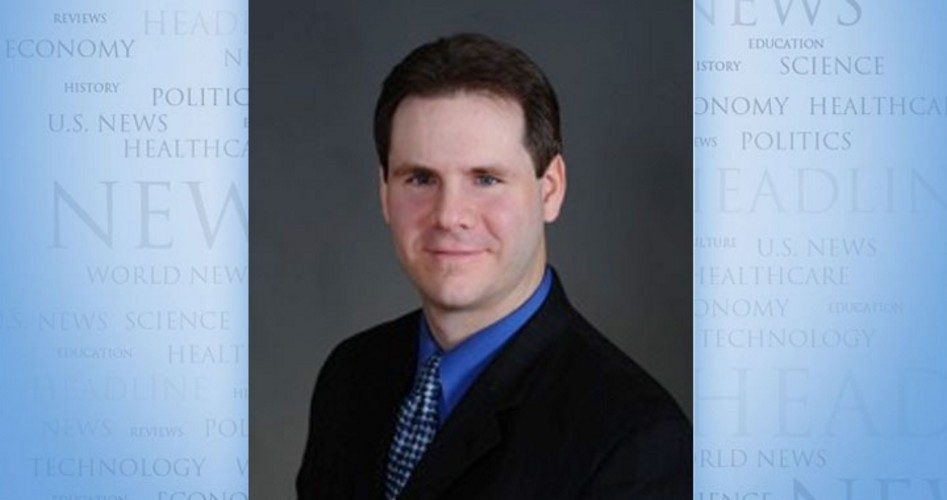
A recent headline reads, “US is becoming more diverse — and quickly, in certain places.” Whether this is positive is a question most people don’t ponder honestly because, even if they do care, it’s not supposed to be asked. But American Thinker writer David L. Rosenthal is violating this mind muzzle, asking Tuesday, “Is diversity good?”
Interestingly, “diversity” is partially derived from words meaning “contrariety, contradiction, disagreement” and even “wickedness” and “perversity,” according to the Online Etymology Dictionary. No, this tells us nothing definitive about the concept of “diversity” today — that is, not any more than does the mantra “Our strength lies in our diversity!”
Examining the issue more intellectually, Rosenthal writes, “In some things, diversity is very good.… Diversity in the marketplace caters to the needs and preferences of consumers. Some want chocolate, others vanilla. Some want a coupe, others a sedan.”
“Diversity in education offers a variety of study opportunities for people with different interests,” he continues. “Some major in mathematics, others in literature, others in engineering, others in law, others in woodworking, and others in origami.”
“But what happens when there is diversity in worldview, sociopolitical ideology, and moral orientation?” Rosenthal then asks. ”Can we all just get along? Can we be a happy-go-lucky melting pot of people with disparate values, beliefs, norms, agendas, and objectives? Do we want to coexist with others who do not share our values?”
To define this precisely, this is the difference between matters of taste and of Truth. To the best of my knowledge, no war was ever launched due to a preference for broccoli over asparagus, nor has any government enacted the Anti-chocolate Act, establishing vanilla as the National Flavor. Only a tyrant would even think about legislating taste.
But issues of Truth are quite different. People wonder why anyone ever fought over religion (as they themselves fight over ideology). The worldview that prevails in society, however, is very significant. Under representative government, it will ultimately shape the laws and, just as significantly, the social laws: traditions, conventions, social codes, etc. Under a despotic government, the taking hold of the “wrong” worldview can increase the chances of the despots’ overthrow (thus does North Korea’s Kim Jong-un try to control the ideas entering his country). In contrast, the maintenance of a slave mentality perpetuates tyrants’ power.
Clearly, not all worldviews are created equal, and this brings us to a common mistake. Conservatives will rightly bemoan how, for instance, academia touts superficial diversity — in race, sex, ethnicity, etc. — but remains monolithically left-wing. “We need diversity of thought!” conservatives will bellow.
This point may be effective rhetorically, but reflects a misconception. We should seek neither blind ideological conformity nor ideological diversity, but something generally forgotten today:
Truth.
Merely seeking diversity in what is put in heads is like merely seeking diversity in what is put in mouths. The latter might mean some healthful fare, but also could include junk food and even poison; our menu should be governed by dietary truth (laws of human nutrition), not just a taste for “diversity.”
Likewise, “diversity” as guide for intellectual fare would allow room for Nazism, Marxism, and genocidal ideas in schools. And should we still debate the merits of murder, rape, and slavery? Or should they be closed questions?
As mirthful philosopher G.K. Chesterton put it, mocking the notion of perpetual “open-mindedness,” “Whatever we may think of the merits of torturing children for pleasure, and no doubt there is much to be said on both sides, I am sure we all agree that it should be done with sterilized instruments.”
How does this relate to superficial, immigration-intensified national diversity? As in Academia, it certainly is stressed — we even have an immigration “diversity lottery.” But immigrants aren’t just physical bodies of certain colors and ethnicities and of either sex. Nor are they merely worker cogs with certain skill sets (conservatives, take note) that can play a role in an economic system. They’re also something else: idea carriers.
So the most important question is seldom asked: What ideas do prospective immigrants bring with them? Will they build America up or tear her down not just economically, but socially? Are they the type of “moral and religious people” our second President, John Adams, said was the only kind of people our constitution was made for?
Since immigrants will one day vote and shape our future laws — and social laws — (and thus our economic system) these are the only questions that really matter.
But Diversity Dogma precludes their asking. Instead, “Our strength lies in our diversity!” is mindlessly parroted. It’s reminiscent of the film Idiocracy’s intellectually degraded, dystopian future America. While the crops weren’t growing because they were “watered” with a sports drink, all people would do is repeat the company slogan, “Brawndo’s got what plants crave. It’s got electrolytes!” (amusing video below).
All this said, the dirty little secret is that liberals favor the current immigration-born increasing “diversity” only because it leads to increasing leftist ideological conformity, as most of today’s immigrants vote for socialistic Democrats upon naturalization (and sometimes before).
So as with many other things, the establishment doesn’t want us questioning “diversity.” Hey, it’s got what leftists crave — it’s got electrolytes.


